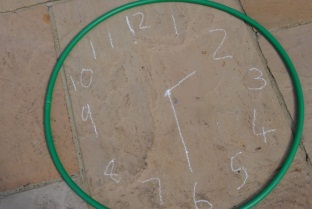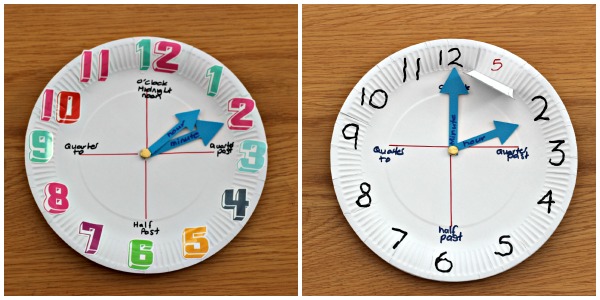Rowan Class Home Learning Week beginning 20th April
Welcome back everybody – hope you had a lovely Easter.
Each week, I will post lots of suggestions for home learning. You aren’t expected to do everything. Please pick out the things that will work best for your family. We are covering similar topics across all classes so that siblings can work together – feel free to also have a go at activities set by other class teachers or help your younger brothers and sisters with their learning too.
 For those of you who prefer to print work for the children to complete offline, you will find downloads below. For those who like online activities, there are suggested weblinks.
For those of you who prefer to print work for the children to complete offline, you will find downloads below. For those who like online activities, there are suggested weblinks.
Spellings: the ‘s’ sound spelt with sc
Example Words: science, scientist, scissors, crescent, discipline, fascinate, scent, descent, ascent, scenery. Can you find other words? Use look/say/cover/write/check to practice spelling them. Do you know what all the words mean? Can you use each word in a sentence? Practise writing them as quickly as you can. Practise writing them in your best joined handwriting. You can also find more activities on letterjoin if you click on ‘Rowan’ after logging in.
Maths: Telling the Time
Children should be able to read the time on clock faces and digital clocks and be able to describe the time in words (e.g. twenty to three) and in the 12 & 24 hour clock (2:40pm or 14:40). They should be able to read times and work out how long something (e.g. a film) lasts. They should be able to work out start and finish times. They should know the relationship between different units of time: 60 seconds in a minute; 60 minutes in a an hour; 24 hours in a day; 7 days in a week; the months of the year & number of days in each; 365 days in a year (366 in a leap year); 10 years in a decade; 100 years in a century.
Maths Challenge for the Week: Work out how long you spend in a week doing one of these activities: reading, eating, watching TV or online. You could estimate this. You might need to record the times you do it every day. At the end of the week, can you use your findings to work out how long you would spend in a year? How many days, hours and minutes is that?
Suggested Maths Activities:
 Make a clock.
Make a clock.- Draw some clock faces – write the times they show in words, 12 & 24 hour clock.
- Design a poster to teach younger children how to tell the time.
 If you have younger siblings, you could help to teach them to tell the time.
If you have younger siblings, you could help to teach them to tell the time.- Design a timetable for your day.
- Look at the TV guide: work out how long different TV shows and films last.
- Look at a bus or train timetable: use it to plan a journey. How long does it take to get to different places? If you arrived at 14:30, what is the next bus or train you could catch? How long would you have to wait?
- Time how long it takes you to do 20 star jumps (or another activity of your choice). Work out how long it would take you to do 100? Or 500? Or 1000? In seconds? In minutes?
If you prefer printable activities, there are some problems for Year 4 and Year 5 below and more worksheets can be found on Purple Mash: Click on ‘Maths’ and then click on ‘Time’ under the Topics heading.
If you prefer online activities, there are some time activities set as TO Dos on Purple Mash and further practice with time can be found by clicking on ‘Maths’ and then ‘Time’ under the Topics heading. Further online games can be found here: http://www.maths-games.org/time-games.html
English: Mrs Godbold’s Writing Challenge

Brian had often bought things from the market that had turned out to be the most outrageous, disappointing fakes. He had presumed that the magic biscuits would have been exactly the same. How wrong he had been..
Writing Challenge for the Week: Can you continue the story? Don’t forget to edit your writing once you have completed the story. The writing mats below will help you. Perhaps read it to someone in your family and ask them what they liked and how you could make it even better. If you want, you could write up a final draft: think best joined handwriting (or type it) and add illustrations.
Comprehension:
- What had happened when Brian fed the biscuits to his dogs?
- How quickly did they grow to this size do you think?
- Did Brian give the biscuits to anything/anyone else?
- Have the creatures stopped growing?
- How will Brian keep them as pets?
- What are the benefits/problems with having such enormous pets?
- Is there a way for Brian to restore his animals to their original size?
Grammar Suggestions:
This half-term we are going to be practising recognising all the different word classes. The Knowledge Organiser (see links below) will help you. This week let’s focus on easy ones: nouns & adjectives. Nouns are names of things. Adjectives are describing words.
- List all the nouns you can see in the picture. Can you think of three adjectives to describe each one?
- Take one sentence from your story. Circle all the nouns and underline all the adjectives?
- Make a list of nouns to go with our Japan topic: can you sort them into common nouns and proper nouns?
Topic: Japan
Focus for the Week: Geography & Climate
You might like to find out:
- Where in the world is Japan? Can you find the seas around it?
- Japan is made up of islands. Can you name the main ones? Can you find the capital city?
- What is the weather like? Is it the same all over Japan? Does it change at different times of the year?
- What is the landscape like in Japan? Can you draw any of the natural features?
Suggested Activities:
- Design a front cover page for your Japan project.
- Make an ‘I know, I think, I want to find out’ chart.
- Write a list of questions you would ask a Japanese person if you met them.
- Imagine you were visiting Japan: how would you get there. Plan the journey.
- Design a post card from Japan.
- Draw maps from your research.
- Make a Japanese flag.
Useful Links


